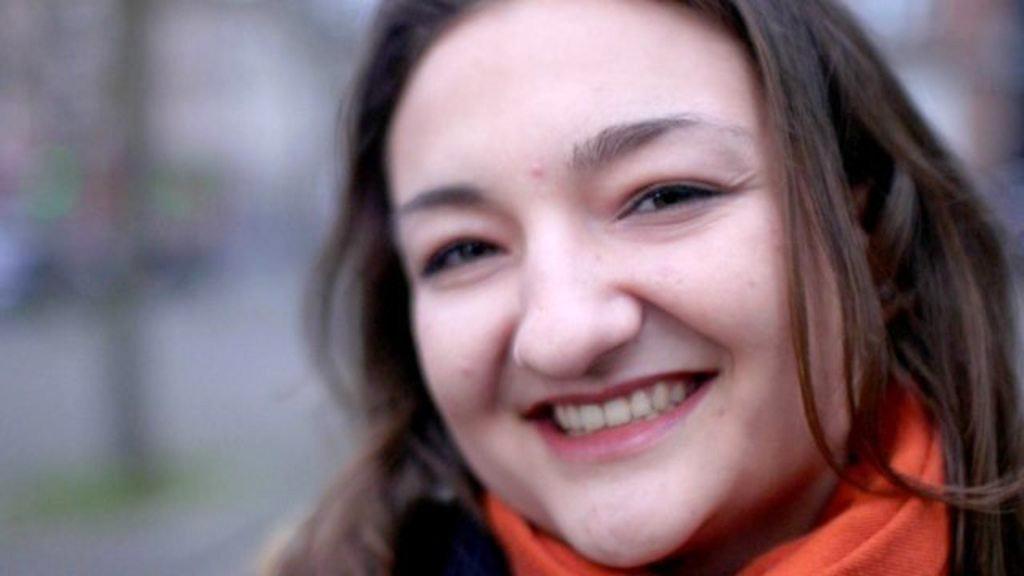French election: Is online far right a threat to democracy?
- Published
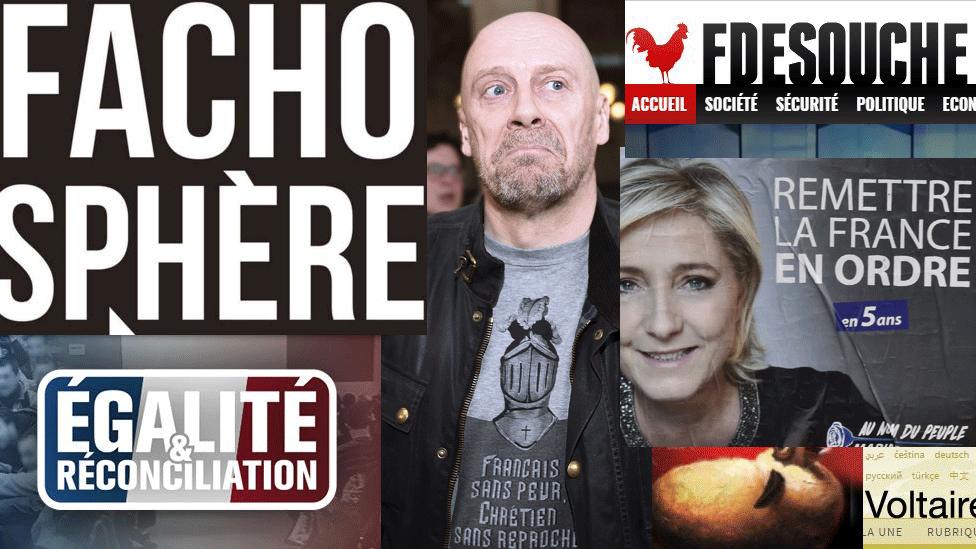
The French far right may be tiny on the institutional stage - the National Front (FN) has only two MPs - but on online platforms it is a giant.
Often collectively called the "fachosphère" (from "fascist"), websites denouncing mass immigration and Islam have seen spectacular growth in France over the past 10 years.
The most popular among them dwarf the sites of the current presidential candidates in terms of page views.

The prominence of the far right in new media is probably linked to its invisibility in old media. The founder of the anti-immigration FN, Jean-Marie Le Pen, was shunned by TV channels until the mid-1980s.
The FN embraced new technology as the best way to get its message across. In 1996, it became the first French party to set up a website. "The National Front might be based on ideas that many regard as musty, but it has always been on the lookout for new technological tools," says David Doucet, co-author of the book La Fachosphère.
As internet access became easier, far-right websites proliferated, revelling in subjects regarded as taboo in a French press that has no mass tabloids and spans a relatively narrow range of views.

How France's alt-right seeks to sway election
Marine Le Pen is riding a populist insurgency that has been growing over the past 15 years. The most distinctive characteristic of France's patriotic surge is youth.

The new bloggers were not beholden to Marine Le Pen's National Front. The fachosphère tends to mistrust the party leader, who has sought respectability in recent years and distanced herself from the nativist - or "identitarian" - fringe.
Analyst Guilhem Fouetillou explains how the French alt-right began
Technology is no longer the FN'S best friend. "The National Front hooked itself to a locomotive that travelled much faster than itself," says Guilhem Fouetillou of Paris-based social analytics firm Linkfluence.
How the cyber-patriots wield influence
The word "fachosphère" may be convenient shorthand, but it is misleading. No major website claims it and you will not see pictures of Mussolini or Hitler. Furthermore, the term suggests a kind of ideological unity that is simply not there.
More on the French far right:
France's cyber-patriots are a diverse lot. Some call themselves the "réinfosphère", signalling their determination to counter what they see as media bias. Rather than preach, such sites put up links to news stories culled from mainstream sources - typically about violence in immigrant suburbs - and let the facts speak for themselves.
Their underlying assumption is that news organisations may be blind to reality but they are occasionally forced to face it. The message of housing estates descending into chaos or Islamism is relayed to those who know where to look, and then shared by those who care.
The pioneer of this approach is Fdesouche - short for "Français de souche", French people of old stock. Although the site's author does not voice an opinion, the comments section gives free rein to a stream of xenophobia.
Fdesouche and like-minded sites are run on a shoestring, but they wield real influence. An outcry last summer over the burkini on French beaches was amplified by the réinfosphère and several mayors decided to ban the Islamic swimwear.
Alain Soral's world of conspiracy
Another corner of France's alt-right galaxy is the "complosphère" (from "complot", or conspiracy). It belongs to a more traditional genre: the unmasking of the supposed hidden forces that rule the world.
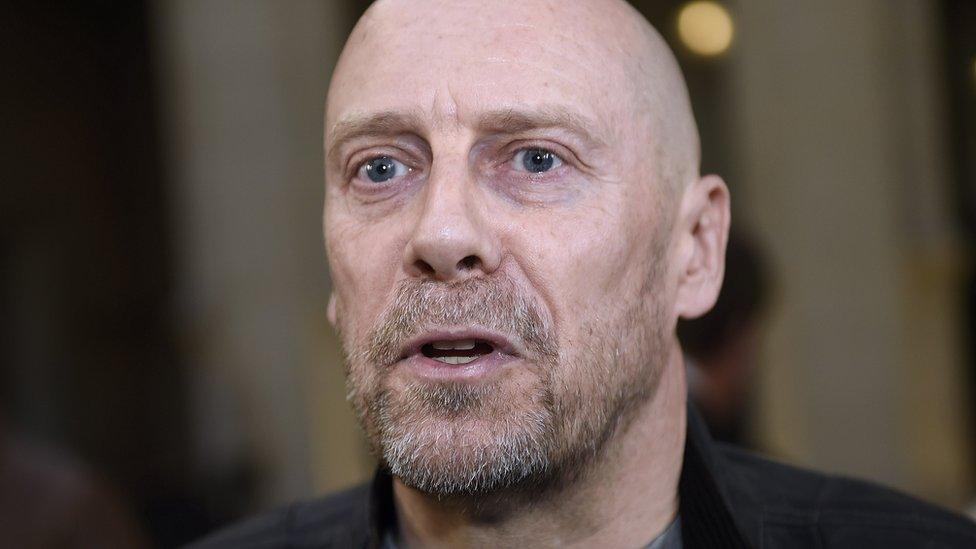
Mr Soral has a mass audience online
The star of the complosphère is Alain Soral. Once a leading figure on the Paris media scene, he is now a pariah.
Soral, an ex-Communist, insists he remains true to his left-wing roots. He is a fierce anti-capitalist and hates identitarians with a passion. He recently came to blows with a white supremacist during a debate.
But what makes him so controversial are the anti-Semitic views he is accused of peddling - under the guise of "anti-Zionism" - on his hugely successful website, Égalité et Reconciliation.
Hearing Soral speak is like being carried away by a wild torrent to strange places. This is a world where Jewish lobby groups are egging Western racists on, directing people's anger towards helpless migrants; they are stoking conflict by aiding jihadists; the US and Israel are behind the spread of Islamic State.
All this may sound bizarre to a mainstream observer, but on one issue Alain Soral undoubtedly has a point: speech is being policed with increasing zeal in France. He has been prosecuted dozens of times over the past decade. In March he received his first custodial sentence, over a cartoon deemed to deny the Holocaust.
The sentence is unlikely to deter him - a photo of Soral in a prison uniform graces an appeal for funds on the site - or change his view that he is being persecuted for his opinions.
Catholic right-wingers find their voice
A significant part of the online radical-right scene is the "cathosphère". France has seen a resurgence of political activism among Catholics over the past decade.
A leading figure in the cathosphère is Guillaume de Thieulloy, a publisher who runs the website Le Salon Beige. A soft-spoken man working from a nondescript office in a Paris tower block, he looks and sounds very different from Alain Soral.
And unlike Mr Soral and many on the far right, Mr Thieulloy is an economic liberal.
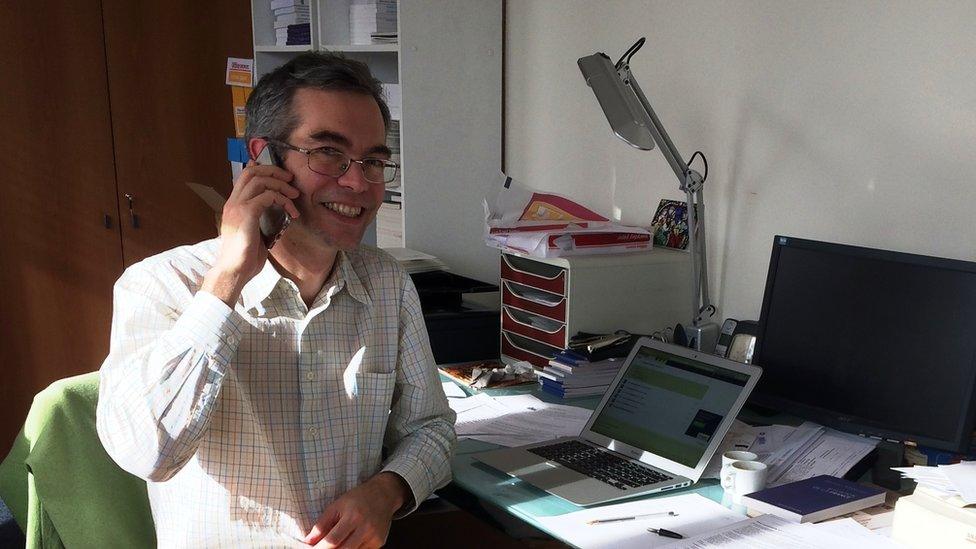
Guillaume de Thieulloy is a publisher who champions traditional Christian values
Yet he is just as scathing about the elites as anyone in the fachosphère.
France's media and centre-right establishment, he contends, have been "intimidated by the multicultural left since the 1980s". His choice of the internet as a vehicle reflects his rejection of the mainstream, as well as his uncompromising stance on abortion and gay marriage.
A wave of mass demonstrations against same-sex marriage in 2013 revealed that his views were shared by millions.
Negative coverage helped promote the cause, Mr de Thieulloy says.
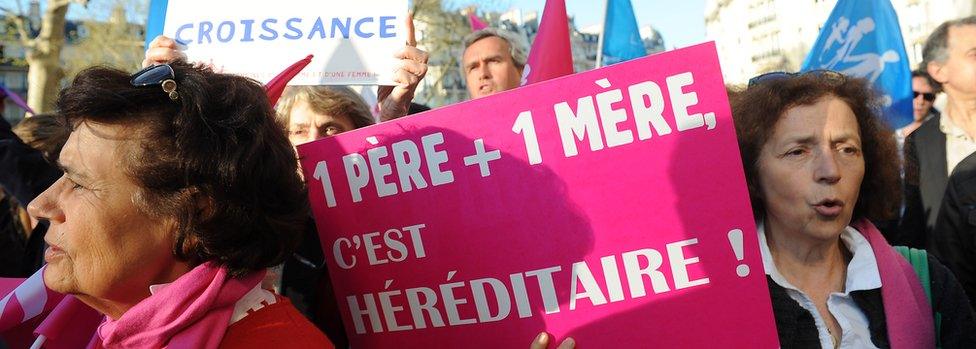
Activists in large numbers took to the streets after the French parliament adopted a gay marriage law in 2013
When Catholic moderates saw they were being portrayed as reactionary homophobes, they rallied to his radical critique of the media. "The left did not know it, but they helped us tremendously," he says. "The dominant discourse has now lost much of its credibility with this group."
Many see the fachosphère as a threat to democracy. One commentator has called it "chilling" and another a "weapon of mass indoctrination".
But web analyst Guilhem Fouetillou is more relaxed. The radical right, he says, only thrived online because it was tapping an unmet demand. He believe it has now caught up with its natural audience and has reached a plateau.
The airing of far-right ideas can even be healthy for democracy, as they are now openly discussed and countered.
"Ideological pluralism is a good thing," says Mr Fouetillou. "Thoughts that are harboured in secret, expressed in the loneliness of the voting booth, or among small groups of like-minded people, are the most indestructible."
For more on the French election: France votes: on the BBC
- Published5 April 2017
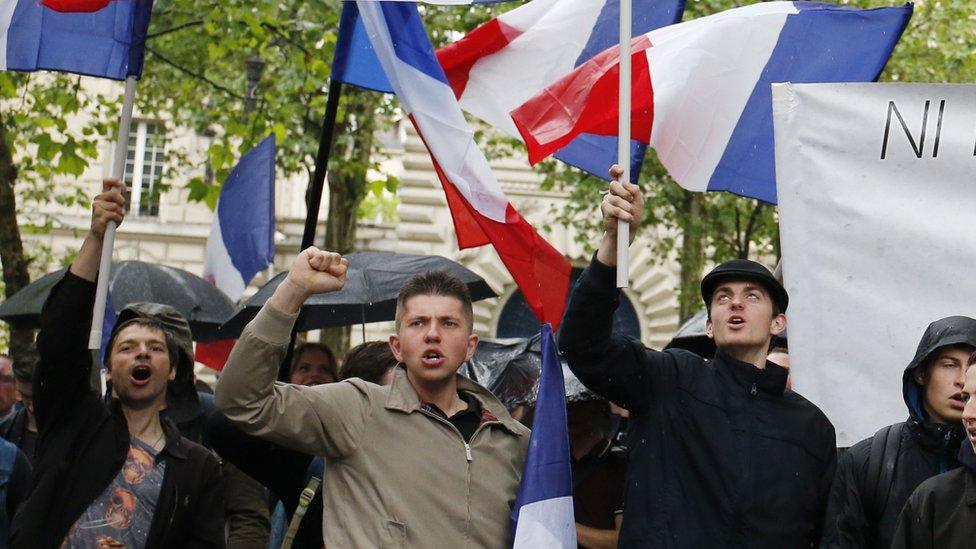
- Published31 March 2017
